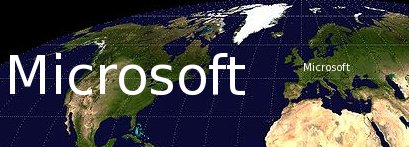
Summary: The sharp contrast between Microsoft's ability to earn a monopoly in the United States and in Europe (still hinged on software patentability)
"Old, but news to me: Domino's Pizza Tracker has a patent pending notice," heralds one person today. How utterly pathetic has the US patent system become?
Fortunately, the absurdity of the US patent system is being investigated and more sites are writing this week about the imminent Bilski verdict [
1,
2]. Lawyers like
Patent WatchTroll are hoping that everything under the sun will become patented. More business to the lawyers, right? It's lawyers who drive science forward and programmers are just their vassals. Shame on scientists who try to get those patent lawyers out of their way. Shame, shame, shame. [sarcasm hopefully noted here]
Anyway, here are
some IPO numbers about patentors:
The Intellectual Property Owners Association (IPO) released its 27th annual list of the top 300 organizations receiving U.S. patents. Patent Docs Readers may recall that the U.S. Patent & Trademark Office stopped releasing its annual list of top patent recipients in 2006 in order to "discourag[e] any perception that we believe more is better."
Watch Microsoft's honourable position. 85% of its patent applications are
said to be software patents and IBM's lust shines through as well (although IBM does more hardware). Microsoft climbed over the years not because it becomes more innovative but because it becomes more aggressive. Microsoft is like the nation that overruns its budgets due to excessive armament (think USSR) while those who stay outside the arms race actually make steps forward, hoping that "lunatic states" won't hit them.
Anyway, Microsoft is not ranked highly in Europe, where software patents are hard to pass through (but practically not impossible). A European lawyers' blog
shares the EPO's chart, which is probably indicative of Microsoft's inclination/bias towards software patents.
The EPO last week published its statistics on patents applied for and granted in 2009.
[...]
The chart shows a clear decline in granted patents from all major applicant countries, namely Germany, Japan and the US (the chart colours of Germany and the UK are almost undistinguishable, but a look in the corresponding table shows that Germany is the top line. Sorry, UK readers). All together, applicants from Germany, the U.S. and Japan received 61% of the patents granted in 2009. South Korea is the only one of the major filing nations that seems to (almost) hold its number of applications.
Microsoft
is in #33 amongst applicants.
in response to
those gene patents we have heard an awful lot about recently, here is what a Stanford blog
has to say.
The piece, which was originally published in the Financial Times, follows earlier criticism from Nobel laureate John Sulston, PhD, that such patents could be "extremely damaging."
Genes, business methods, and software methods should not be patentable. This system is verging the insane if just about anything becomes someone's monopoly. It breeds litigation, not investigation. It makes no economic sense, let alone scientific sense.
⬆
